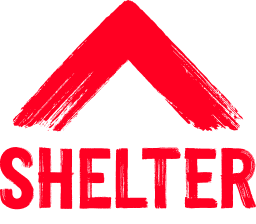The Editor's Contentful Glossary
A non-developers guide to the terminology you’ll see as you use the CMS.
Assemblies
‘Assembly’ has two similar meanings for Shelter's Contentful users, but with a clear difference:
Starting from the smallest types to the largest, our content model (all the content types we can create) is broken into data, components, assemblies, and page templates. An assembly can have multiple components, like with an accordion assembly or a person collection, or have grouped content to perform global functions, like with the website footer.
Within the Contentful system, assemblies are a general term for any content entries that you add to a page.
Assets
The images, PDFs, spreadsheet files and text files stored in Contentful's Media library, and used in other content as embeds or downloads.
Components
A smaller unit of content in Contentful. Some are individual blocks that can be:
directly used in pages, like a full width image or an inline callout
brought into assemblies, like a content cards banner
used in other components, like a two column text and image block
Depending on the page template, some components can be embedded in rich text editors.
Content model
The full list of content types we can create in Contentful. It includes:
page templates
components
assemblies
data entries for people, events, shops, services and more that can be pulled into other content when we create it
Data entries
Content entries which hold central information and content about something, to be linked to from components, assemblies and page templates.
Examples include:
Data – Person: the name, image, job title, bio and other useful information
Data – Event: a wide range of details about a fundraising event
Data – Service: details about Shelter hubs including maps, opening hours, and contact details
Data – Shop: a Shelter shop’s opening hours, address, phone number and shop type
Data – Testimonial: a name, image and quote from a person
Entry
Any created piece of content in a Contentful space (Scotland or England).
Anytime you use the Add entry dropdown to create new content, even if you don't complete a single field, it will be a content entry in your space.
Entry editor
The Contentful entry editor is the editor's screen when they are creating or editing content.
Full path
Every part of a page’s URL that follows the domain (shelter.org.uk): england.shelter.org.uk/housing_advice/council_housing_association/who_is_eligible_to_apply_for_council_housing
Gatsby
Gatsby is the preview service we've built into Contentful, so you can see how pages will render before they're actually built on Netlify.
The preview option only appears on page templates, not when you're editing anything else (a component, assembly or data entry). The page gives the other content a context in which to display.
Netlify
Netlify is our static site generator. It efficiently compiles our published code and builds our web pages, to allow our sites to load faster for users.
If you use the Live page button in Contentful, it’s Netlify’s built page you’ll be viewing.
Netlify generally needs 3-5 minutes to build or rebuild a web page.
Page template
A range of templates for building our web pages. Most templates are built for specific sections like housing advice, legal, media and others. The content page template is our all-purpose flexible template, allowing different layouts and a wide range of content types.
Parent
A page that sits directly above another page (the child) in the hierarchy we construct for a website section.
Sidebar assemblies
Content that will appear on the right-hand side of a page. These page templates allow a sidebar to be added:
advice page
content page (when set to two-thirds width)
standard event page
event category page
person page
Slug
The last part of a page’s URL, e.g. england.shelter.org.uk/housing_advice/eviction/eviction_of_council_tenants
Whenever you're creating or editing a page, the slug will be auto-generated from what you enter in the Title field. Once you set the slug on a page and publish the page, you should never change that slug. A page’s URL becomes the address the web knows it by. Changing the slug changes the URL, risking broken links or users not finding the page.
Space
In Contentful, a space houses all the content types, content entries and media assets for a website. Thus we have two spaces: Scotland and England, which share an identical list of content types.
Within each space there are multiple environments, including our Master (or production) environment. Other environments are used by developers for design, build and testing. Unless you're a developer or you're instructed otherwise, please use the Master environment.
Each space has assigned users with defined permissions for them.
Status
Each entry will have one of four statuses: draft, published, changed or archived.
Any questions? Email Lindsay Foley in the Central Digital team.
